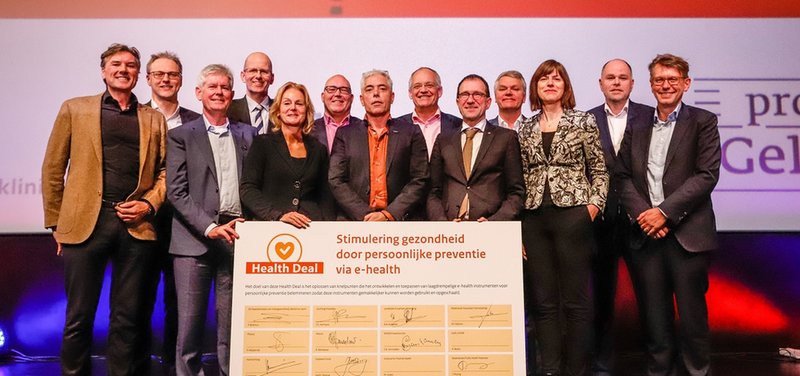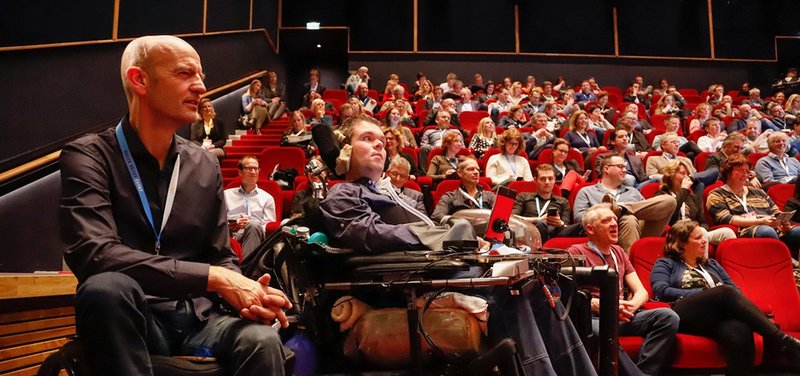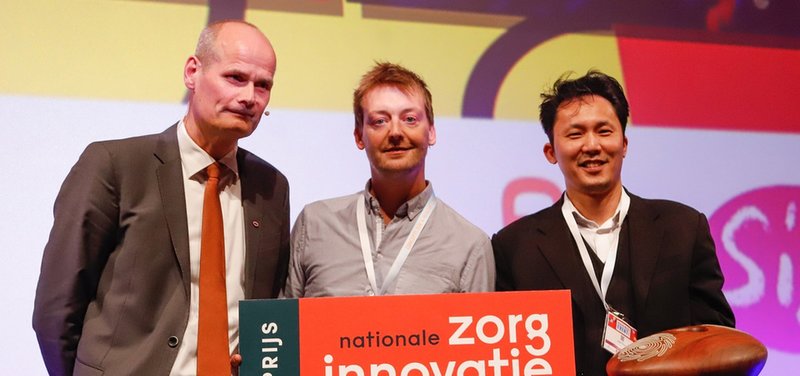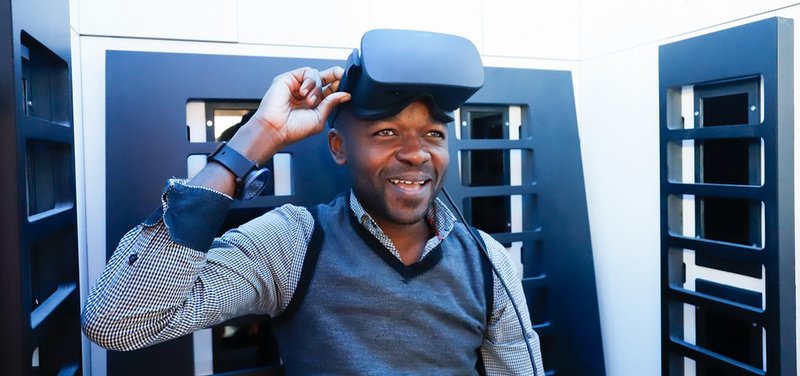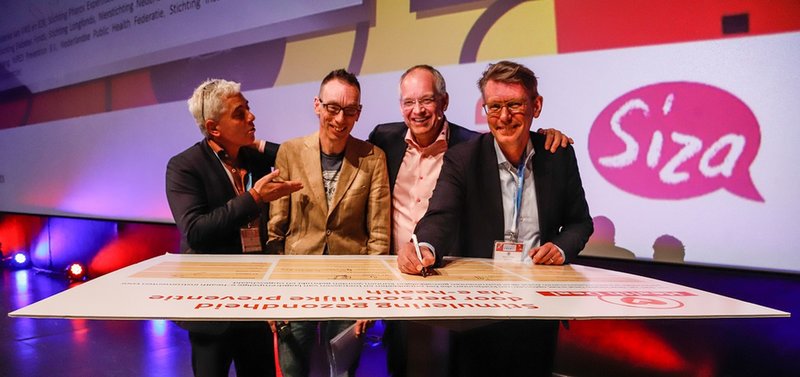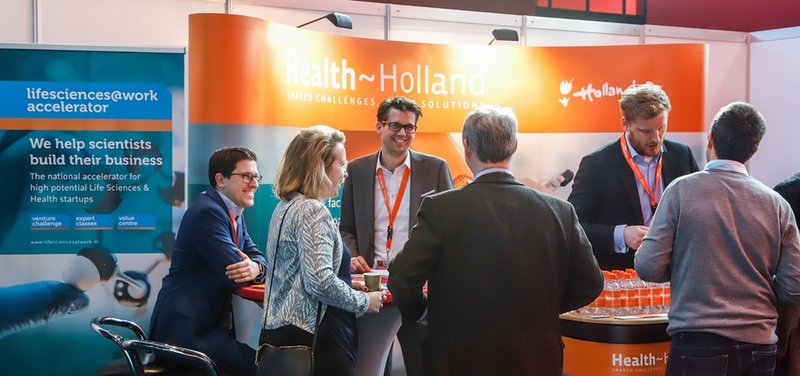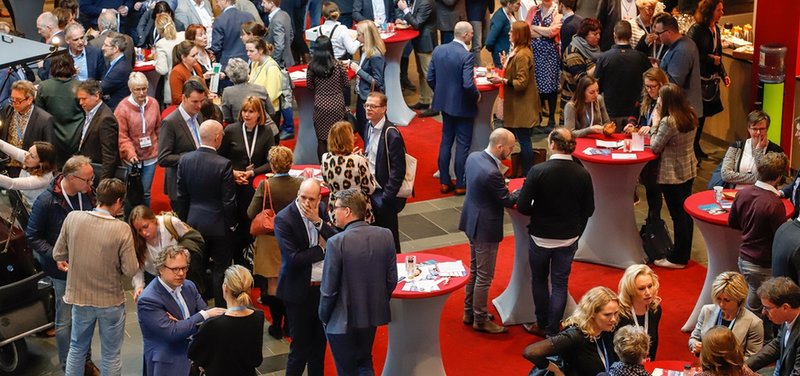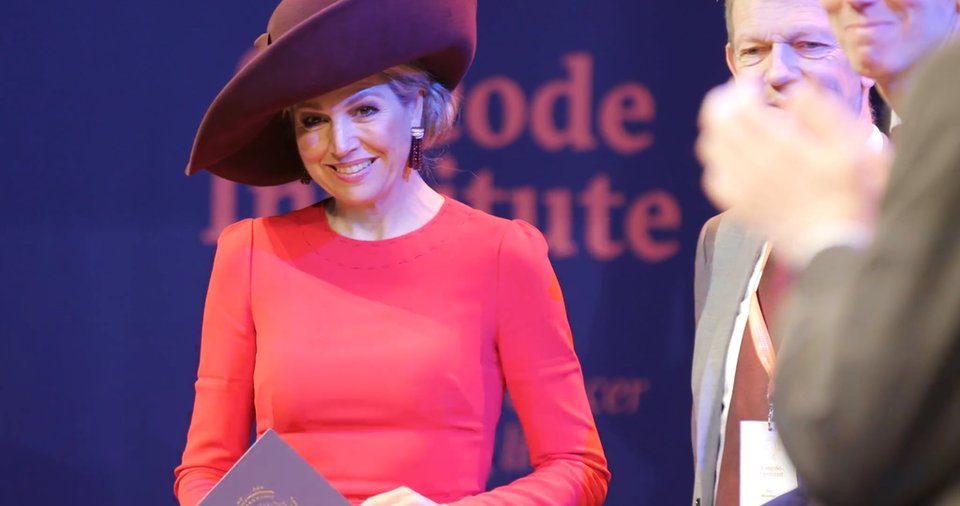Public-Private partnerships
More Examples of Public-Private Partnerships
Some detailed examples of public-private partnerships of the last period to get inspired by.
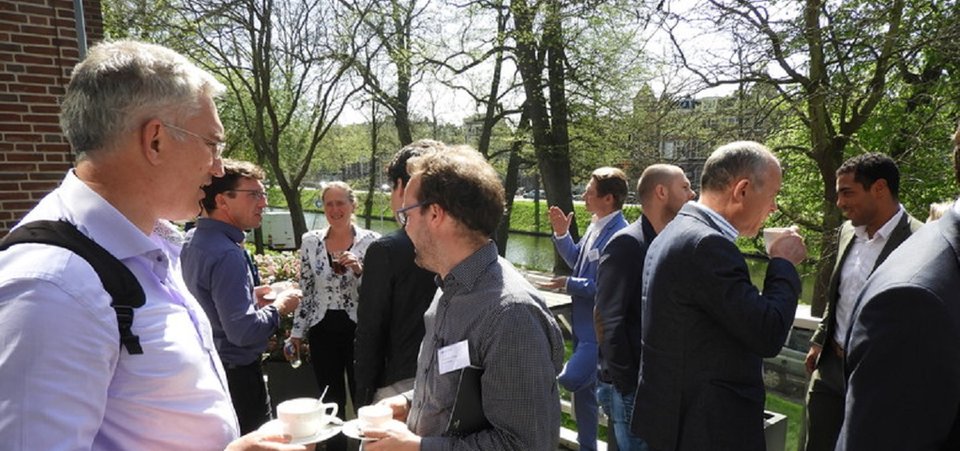
Succesful IMDI 2.0 kick-off
Read more ›
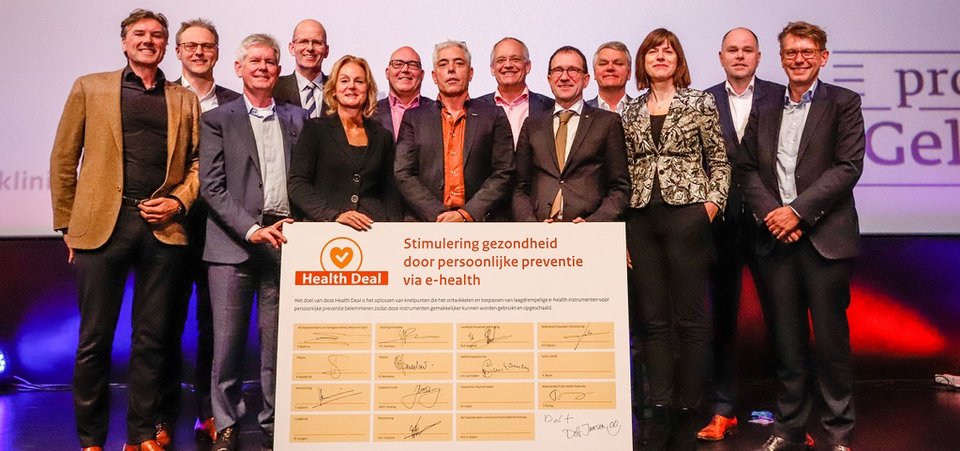
New Health Deal on prevention via
e-health
Read more ›
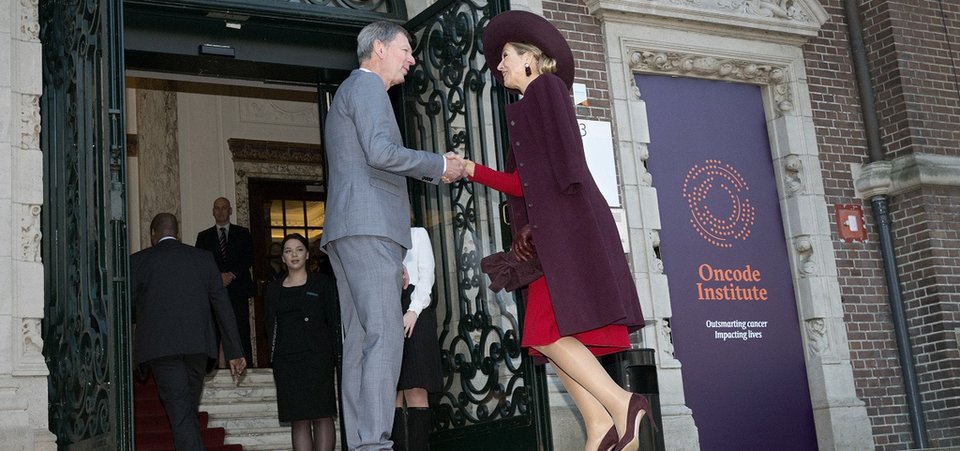
The official launch of Oncode Institute by H.M. Queen Máxima
Read more ›
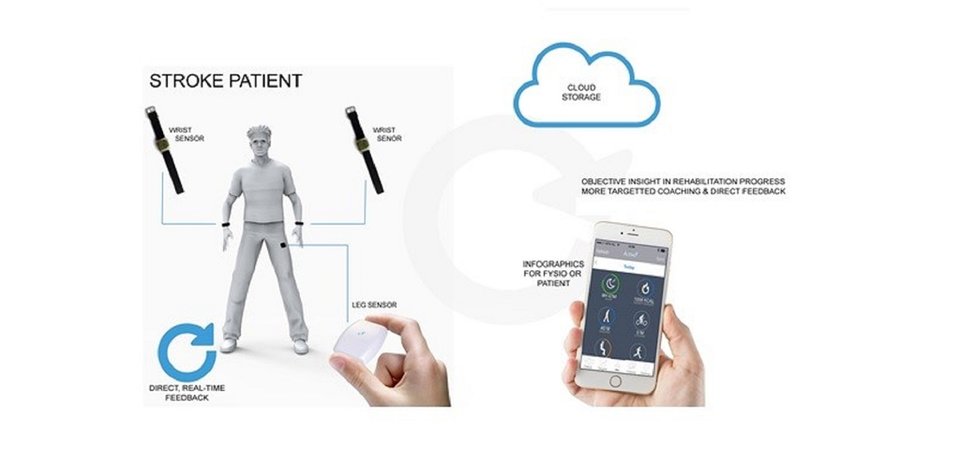
An upper-limb activity tracker: improving arm functioning after stroke
Read more ›
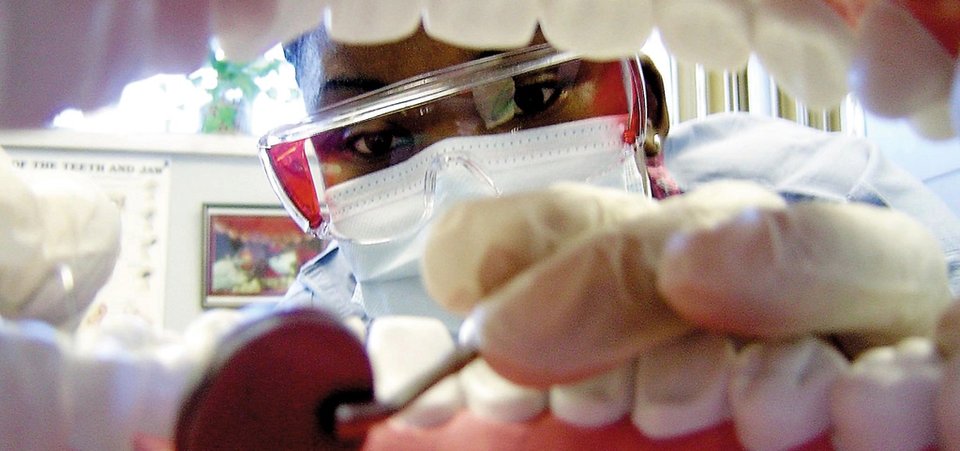
Promoting oral health by controlling the microbial ecosystem of the oral cavity
Read more ›

Promoting oral health by controlling the microbial ecosystem of the oral cavity
Modulation of the oral ecosystem
Oral health is generally being described as a state of being free from (chronic) oral diseases. In a recent public-private-partnership, members of the current consortium have shown that oral health is much more than that: a complex network of biological processes actively sustains oral health and supports oral resilience. Philips, GlaxoSmithKline, TNO and ACTA Dental Research were able to identify specific salivary ecotypes in healthy individuals, linked to ecological differences and disease risk. Also, they identified biomarkers linked to different individual clinical outcomes, after a stress intervention.
In the current project, their main objective is to use their new knowledge to identify strategies to increase oral resilience of still clinically healthy individuals. They will modulate the oral ecosystem of individuals and use molecular, biochemical and machine-learning tools to evaluate the effects of ecosystem variation on oral resilience. While doing so, they will also develop new early diagnostic tools and novel approaches to establish the efficacy of oral care products/strategies. Their project is fully focused on prevention and mainlining oral health and functioning.
The different oral ecotypes (risks for different diseases) imply personalised prevention via support/strategies targeted to the individuals’ ecotype.
Please visit the Health~Holland project page for an overview of funded projects.
New Health Deal on stimulating health through personal prevention via e-health
In 2020, ten percent of the Netherlands will use e-health for personal prevention.That is one of the concrete goals of the recently signed Health Deal 'Stimulating health through personal prevention via e-health.'The Ministry of Economic Affairs and Climate Policy, the Ministry Health, Welfare and Sport and twelve other parties signed the Health Deal during the Health Valley Event on 15 March.The participants promise to undertake efforts to make e-health tools for personal prevention accessible to all Dutch people.
Promoting self-management and self-reliance
Since the rise of the Internet, digital pioneers have been working to provide information on personal health for the individual.The goal is to use this information to promote self-management and self-reliance, which will lead to healthy behaviour.This increases the quality of life and reduces healthcare costs.E-health instruments stimulate people to be busy with their health in a fun way.Personal prevention via e-health instruments are therefore a response to the 'gamification' trend, which encourages the Dutch to playfully change their behaviour.
Erik Gerritsen, Secretary General at the Ministry of Health, Welfare and Sport: “eHealth is a great approach for change in behaviour and a tool for prevention.”
Bottlenecks
There are also bottlenecks.First of all, the quality and reliability of health control is not yet in order, with one of the biggest concerns being data processing privacy.A second bottleneck is financing.Should the government, the health insurer, the employer or the consumer pay for this?A third bottleneck is access to use for people with limited digital skills.Further information about the bottlenecks of e-health can be found in the Health Deal text (pdf).
Participants
In addition to the national government, participants include health funds, health insurers, general practitioners and expert centres.Secretary General of the Ministry of Health, Welfare and Sport and Top Team member Erik Gerritsen signed the Health Deal on behalf of State Secretary fro Health, Welfare and Sport Paul Blokhuis.
Health Deals
With Health Deals, the government wants to help the broad application of effective healthcare innovations.The focus is on enabling specific care innovations to be more broadly applied than, for example, the local hospital, the healthcare institution or the region. Health Deals are agreements between the government and various other parties, including private parties.
Questions about Health Deals? Please contact the Netherlands Enterprise Agency (RVO.nl) via the Health Deal website.

The official launch of Oncode Institute by H.M. Queen Máxima
With so much excellent cancer research already being done in the Netherlands, what value can a new organisation add? That question was answered during the official launch of Oncode Institute in the presence of Her Majesty Queen Máxima.
Robbert-Jan Stegeman, a colon cancer patient, was there to represent the importance of Oncode Institute for people living with the disease. “How are you doing?” asked moderator Lex Bohlmeijer. “I’m doing well, I hope, but the difficulty is that you never really know exactly how you’re doing,” said Stegeman, who is participating in experimental research into new medicines. For him, it’s vitally important that patients get quicker access to new drugs. Until now, they’ve had to wait decades. “I think the most important thing is that there’s always hope,” Stegeman said, referring in part to the launch of Oncode Institute.
"I'm doing well, I hope, but the difficulty is that you never really know exactly how you're doing." - Robbert-Jan Stegeman.
Everyone who followed him on stage expressed great hope. “We all want to put an end to cancer,” said Hans Bos, Oncode Institute’s chief scientific officer and a professor of molecular cancer research at Utrecht University. “We’re already working together, but we can take it up a notch. What matters most is that we trust each other instead of seeing each other as competitors.” Ingrid van Engelshoven, the Dutch Minister of Education, Culture and Science, added, “Collaboration is important not only for the advancement of science but also for getting drugs onto the market faster.” She expressed the hope that Oncode Institute would set an example that would encourage collaboration in other sectors.
"What matters most is that we trust each other instead of seeing each other as competitors." - Hans Bos
Oncode Institute’s unique contribution to the field of cancer research lies in the opportunities it offers for fundamental research, the collaboration it fosters between science and business, and its efforts to translate that knowledge for patients’ benefit. More information can be found in the book every launch attendee received, the first copy of which was presented to Her Majesty Queen Máxima. If you weren’t able to attend, you can read Oncode’s foundding principles here.
Oncode Institute is one of the strategic public-private partnerships supported by Health~Holland and is adopted in the Knowledge and Innovation Agenda (KIA) 2018-2021.
Source: Oncode

An upper-limb activity tracker: improving arm functioning after stroke
An ActiviTy TRACker for the hand: Improving daily-life hand functioning after stroke by objective activity Feedback (ATTRACTIF)
This project develops a novel activity tracker that stimulates people with stroke to use the hand more frequently and intensively in order to improve hand skills. Based on the extensive experience within this consortium, Erasmus MC, Rijndam Revalidation and 2M Engineering will develop an activity tracker that is innovative in measuring hand use as well as in providing patient-specific triggers to stimulate hand use after stroke.
Stroke is a major threat to self-dependence since it often affects the upper limbs, which are essential to perform a majority of daily life activities. Furthermore, stroke is a disease with a high incidence (the Netherlands: about 41,000 cases per year) and the estimated annual care costs of stroke are enormous (the Netherlands: almost 2.3 billion euros for 2011). With the aging of society both the incidence and costs will further increase. Hence, improvement of rehabilitation strategies targeting arm-hand use and functioning is urgently required.
Therefore, this project develops a novel therapy based on a hand activity tracker. The activity tracker stimulates hand use in stroke patients using patient-specific triggers, to improve hand functioning. In addition, outcomes on hand use will be transferred to the patient’s therapists to personalise treatment. This project will result in a more optimal and efficient treatment of a large group of stroke patients, thereby reducing costs and improving patients’ independency, self-management, vitality and quality of life.
The consortium will design an innovative hand activity tracker and develop prototypes. The hand activity tracker will consist of two wrist-worn devices and – if needed – one device attached to the leg. It will measure hand use and stimulate stroke patients to use their affected hand based on automated and individualised triggers. In addition, outcomes on hand use can be transferred to the patient’s therapists to tailor treatment to defined goals.
Please visit the Health~Holland project page for an overview of funded projects.
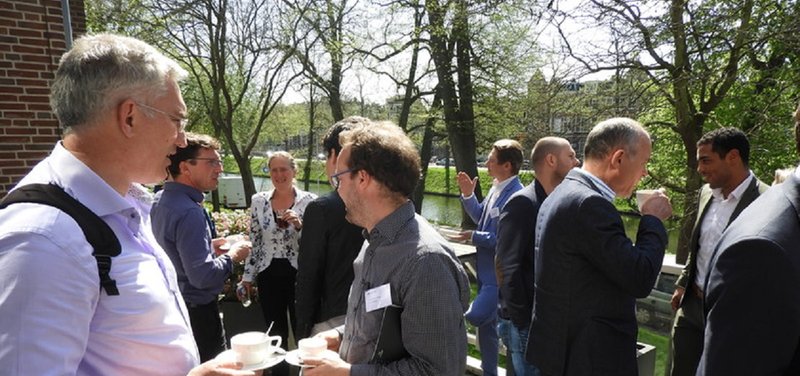
Succesful IMDI 2.0 kick-off
On Wednesday the 18th of April the IMDI 2.0 kick-off took place in Utrecht. During this afternoon Hans Rietman, chairman of the IMDI 2.0 steering group, presented the sequel of the IMDI subsidy programme. Henk Smid, director of ZonMw, also thanked Cor Spreeuwenberg as chairman of the IMDI initiative group for his help by setting up IMDI 2.0.
During the kick-off three recently funded projects and seven ongoing projects from the Centre’s of Research Excellence (CoRE’s) presented themselves. The presentations gave a good impression of what has been achieved so far with the IMDI programme and which developments will come.
Besides several IMDI projects, Maatschappelijk Verantwoord Innoveren (MVI) also presented itself as a cooperation partner for IMDI 2.0. MVI is a NWO programme that focuses on how responsible innovations can count on a broad societal consensus. In an early stage MVI will identify ethical and societal aspects of (technological) innovations so that these can be taken into account in the design process.
The event was closed by a stimulating debate with statements. The panel, consisting of Rebecca Abma (Dutch Heart Foundation), Henk Jansen (Indes), Jeroen Kemperman (Zilveren Kruis) and Sjaak van der Pouw (Siemens Healthineers) inspired each other and the room with sharp answers. The statements were mainly about the role of technological developments and the future demand of care. It was a nice ending to a successful kick-off meeting.
IMDI 2.0
In 2016 an international commission evaluated the IMDI programme. The main conclusion is that much has been achieved with few resources. One point for attention was the implementation of the innovations. IMDI 2.0 is aimed at realising the evaluation points of the international commission. As chairman of the new steering group, Hans Rietman explained briefly the new plans for the renewed IMDI programme.
IMDI 2.0 is one of the strategic public-private partnerships supported by Health~Holland and is adopted in the Knowledge and Innovation Agenda (KIA) 2018-2021.
